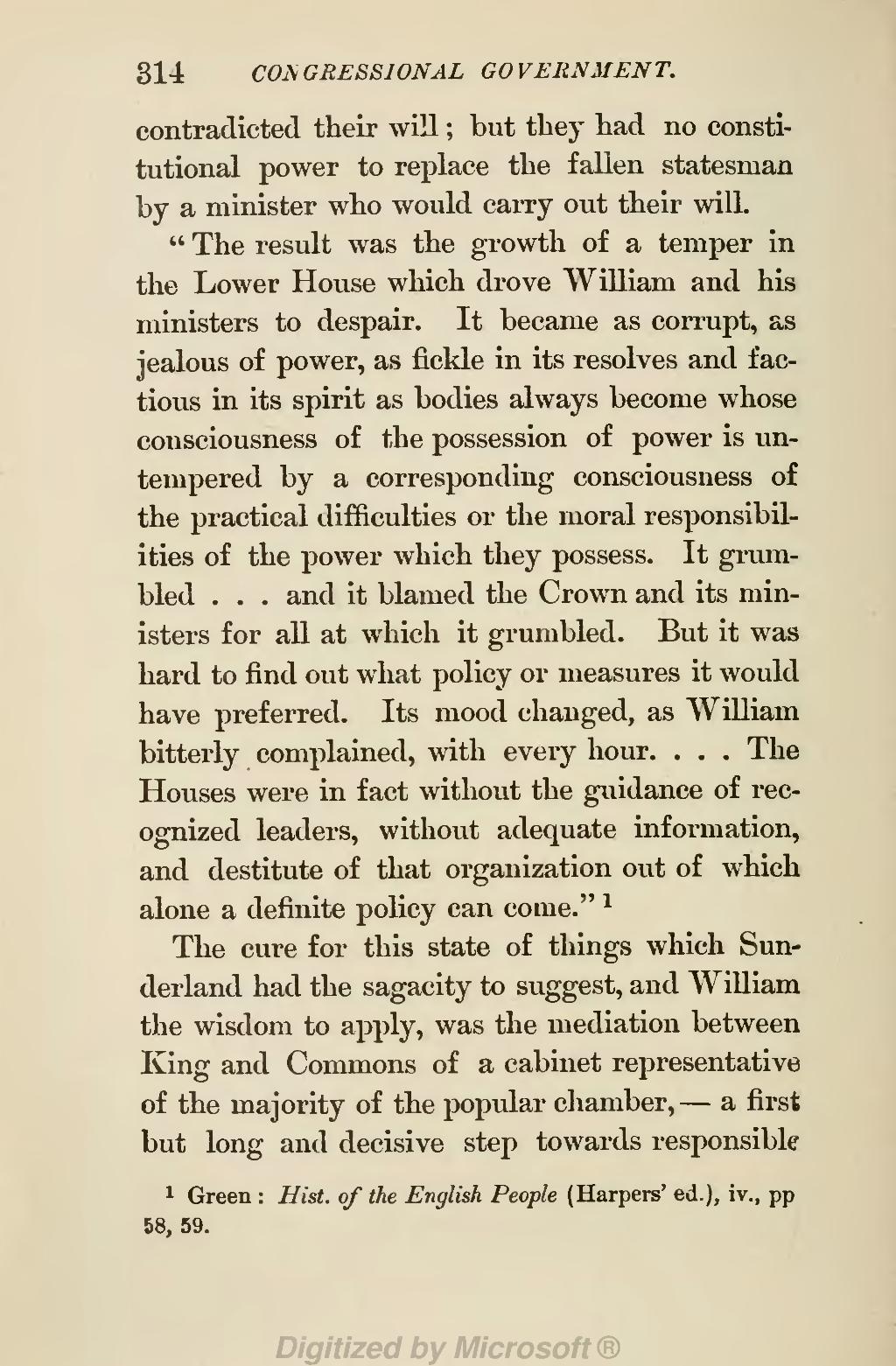contradicted their will; but they had no constiutional power to replace the fallen statesman by a minister who would carry out their will.
“The result was the growth of a temper in the Lower House which drove William and his ministers to despair. It became as corrupt, as jealous of power, as fickle in its resolves and factious in its spirit as bodies always become whose consciousness of the possession of power is untempered by a corresponding consciousness of the practical difficulties or the moral responsibilities of the power which they possess. It grumbled . . . and it blamed the Crown and its ministers for all at which it grumbled. But it was hard to find out what policy or measures it would have preferred. Its mood changed, as William bitterly complained, with every hour. . . . The Houses were in fact without the guidance of recognized leaders, without adequate informnation, and destitute of that organization out of which alone a definite policy can come.”[1]
The cure for this state of things which Sunderland had the sagacity to suggest, and William the wisdom to apply, was the mediation between King and Commons of cabinet representative of the majority of the popular chamber,—a first but long and decisive step towards responsible
- ↑ Green: Hist. of the English People (Harpers’ ed.), iv., pp. 58, 59.
